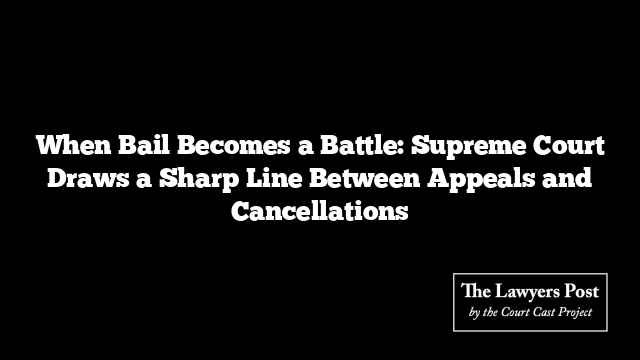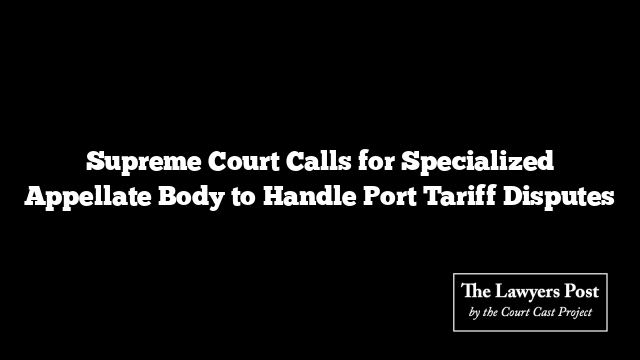The Supreme Court has used the high-profile Sushil Kumar murder case to lay down a clear framework on how courts must approach challenges to bail orders. In doing so, it underlined a crucial distinction: questioning the grant of bail is not the same as seeking cancellation of bail.
The bench of Justices Sanjay Karol and Prashant Kumar Mishra, while overturning the Delhi High Court’s decision to release the Olympian wrestler in the Sagar Dhankhar murder case, issued guiding principles meant to prevent misuse of appellate remedies and to ensure consistency in bail jurisprudence.
The Two Paths: Appeal vs. Cancellation
The Court emphasized that an appeal against the grant of bail can succeed if the original order overlooked critical factors—such as the seriousness of the crime, the potential impact on the trial, or if the order itself is legally flawed or perverse. By contrast, cancellation of bail rests on supervening circumstances: violations of bail conditions, misconduct after release, or fresh threats to the fairness of proceedings.
Put simply, one looks back at the order itself, the other looks forward to the conduct of the accused.
The Principles Laid Down
The Court distilled its position into six crisp rules:
- Appeals against bail orders cannot be equated with cancellation pleas.
- Courts must avoid dissecting prosecution evidence in detail at the bail stage.
- Bail orders must reflect judicial application of mind to all relevant factors.
- Superior courts can intervene if the bail order shows perversity, illegality, or disregard of material considerations like the gravity of the offence.
- Post-bail conduct of an accused is not a ground in an appeal—such issues belong in cancellation proceedings.
- Appeals must not be weaponized as retaliatory tactics.
The Sushil Kumar Lens
Applying these principles, the bench found that the Delhi High Court had erred in granting bail to Kumar without weighing the grievous nature of the crime, his potential influence over witnesses, and his conduct during investigation.
The Court noted that Kumar’s stature as an Olympian and his influence in society could not be ignored, especially when multiple witnesses had already complained in writing of threats and pressure. Allowing bail in such circumstances, it ruled, risked undermining the very integrity of the trial.
In reinforcing this framework, the Court also referred to earlier rulings where it was held that even if bail conditions are not violated, the grant itself can be struck down if it was made without due consideration of key factors such as the role of the accused, likelihood of tampering with witnesses, or the severity of the allegations.
The Takeaway
With this judgment, the Supreme Court has sent out a message that appellate scrutiny of bail orders must be disciplined, principled, and resistant to both overreach and misuse. The ruling makes clear that the path to justice in bail matters is not a free-for-all, but a carefully demarcated track where fairness to the accused and protection of trial integrity must travel side by side.





